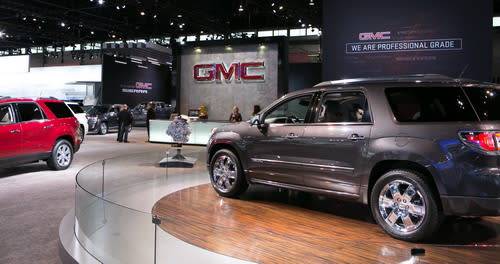U.S. Sells Remaining GM Stock


Remember TV commercials in early 2010 where GM’s then-CEO Ed Whitacre proclaimed the automaker had paid back its loans in full? Though technically accurate — the automaker repaid $8.1 billion in loans from the U.S. and Canadian government in April 2010 — the ads suggested taxpayers had no more involvement in Detroit’s largest automaker. Critics argued that wasn’t the case. When the Bush and Obama administrations orchestrated a $49.5 billion bailout of the ailing automaker in 2008 and 2009, part of the deal involved the U.S. Treasury taking a 61 percent ownership stake in The General. Taxpayers have held a stake until now.
The Treasury announced Monday that it sold its remaining shares in GM, whose U.S. brands include Buick, Cadillac, Chevrolet and GMC. But the automaker may want to hold off an ad blitz this time around. That’s because the final chunk of a progressive sell-down means we can finally total the losses, and the bill for taxpayers is $10.5 billion.
This week marked the final chunk of the sell-down, which began in earnest when the government sold its stake down to 33 percent during GM’s November 2010 IPO. In December 2012, GM purchased another chunk as the Treasury announced plans to sell its remaining stake — roughly 19 percent of the automaker at the time — by March 2014. It ran ahead of schedule; by September, taxpayers owned just 7.3 percent of GM.
Still, every stock sale meant booking more taxpayer losses. That’s why the Treasury didn’t sell any stock between the November 2010 IPO and after the 2012 presidential election, the Detroit News points out. After opening at around $35 a share in late 2010, GM stock languished for much of 2011 and 2012 in the $20 to $30 range — far less than the government would need to break even on its bailout investment. The automaker’s stock broke $40 for the first time this month, and U.S. Treasury Secretary Jack Lew said Monday that the government sold off its final 2.2 percent stake in the automaker, according to the Detroit News.
Taxpayers stand to lose $10.5 billion of the original $49.5 billion bailout. But the Treasury paints a bleaker alternative.
The bailout “helped stabilize the auto industry, and prevent another Great Depression,” Lew said in a statement. “Inaction could have cost the broader economy more than one million jobs, billions in lost personal savings, and significantly reduced economic production. As a result of [President Obama’s] efforts, which built on those of the previous Administration, more than 370,000 new auto jobs have been created, and all three U.S. automakers are profitable, competitive, and growing.”
A study released Monday by the Ann Arbor, Mich.-based Center for Automotive Research corroborates that. Had GM and Chrysler — and subsequent auto suppliers — collapsed entirely, some 2.6 million jobs would have been lost in 2009, followed by 1.5 million in 2010. The total loss in federal revenue (including unemployment filings, lost taxes and the like) would have eclipsed $100 billion, CAR said.
GM accounts for the lion’s share of bailout money and losses booked during the bailouts of GM, Chrysler and their respective finance arms. The U.S. exited Chrysler at the cost of $1.3 billion to taxpayers, the Treasury says, although a special inspector appointed to the Troubled Asset Relief Program pegged the Chrysler toll at $2.9 billion. Taxpayers still own some $5.5 billion worth of Ally Financial, formerly GM’s GMAC finance arm. The government hopes to exit Ally next year, the Detroit News reports.
Canada still has a $4.2 billion stake in GM. But the move gives GM flexibility to pay stock dividends and raise executive pay outside government restrictions, the newspaper said. GM may have already acted on that, announcing today that product-development chief Mary Barra will succeed CEO Dan Akerson in January 2014. She will become GM’s first female chief executive.
Related
Treasury to Sell Final Shares of GM
New Report: GM Stock Would Need to Triple for Taxpayers to Break Even
More GM News

Former Assistant Managing Editor-News Kelsey Mays likes quality, reliability, safety and practicality. But he also likes a fair price.
Featured stories




